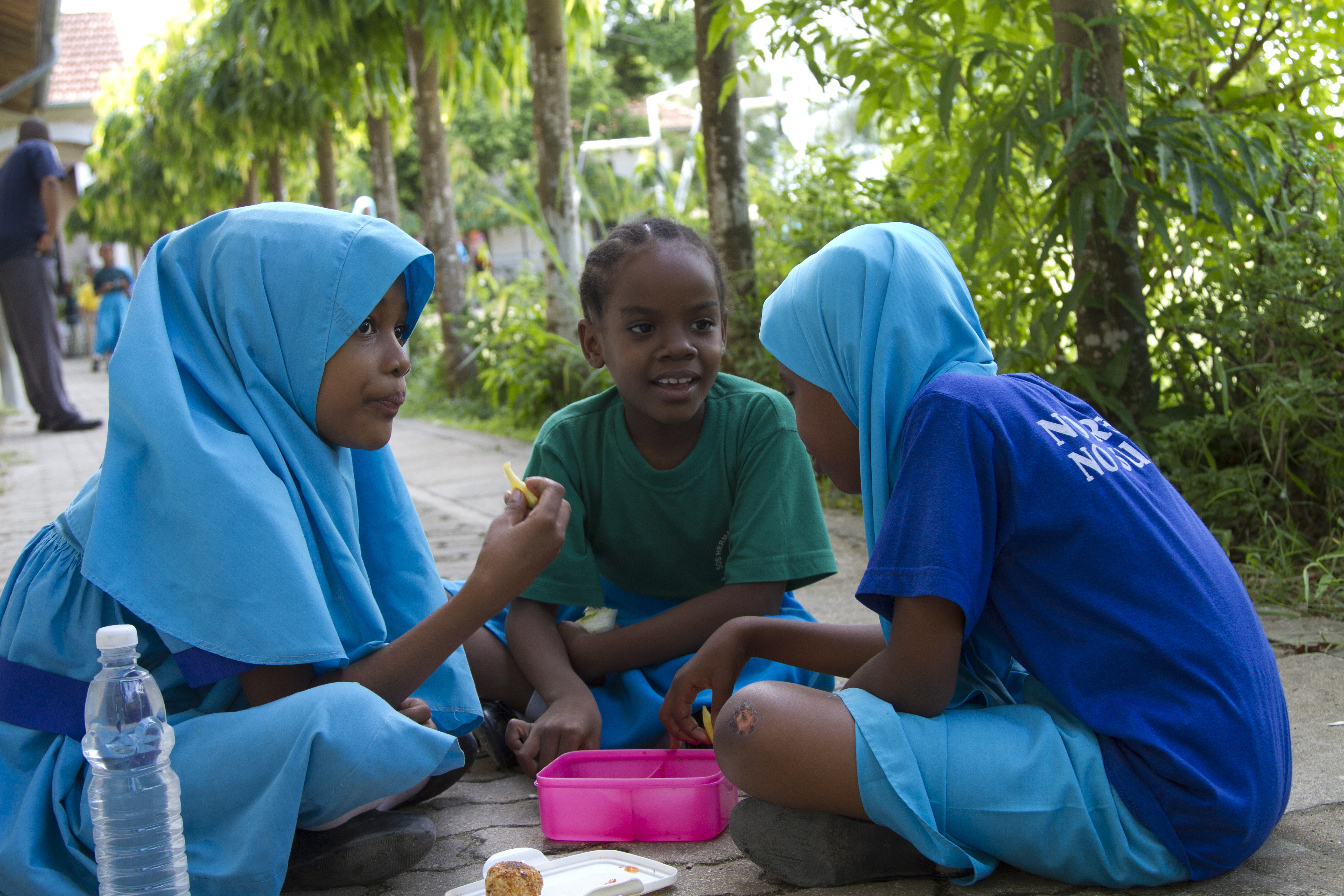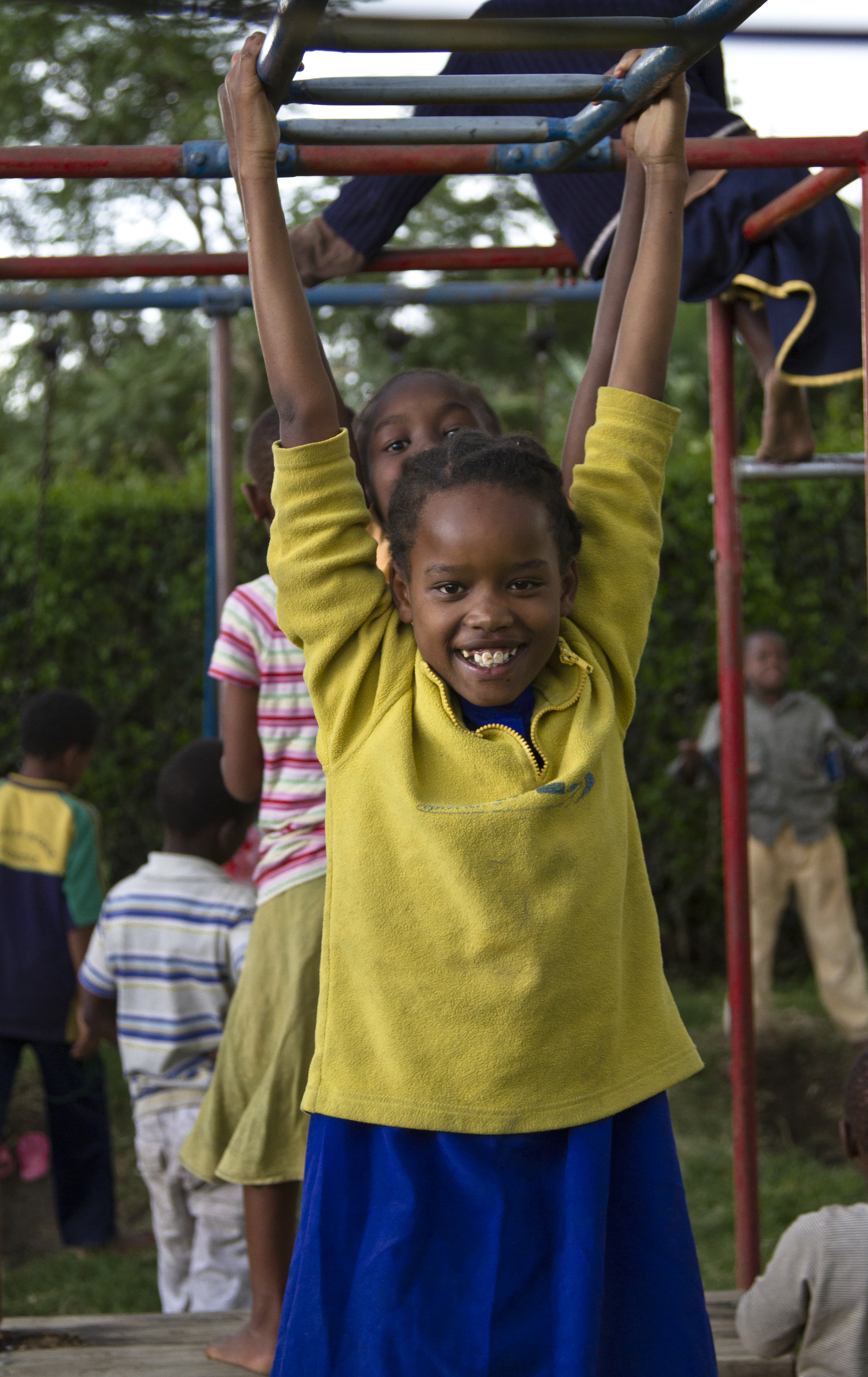The conditions the majority of children grow up in are precarious
_1.jpg?width=800)
Children enjoying a snack in the garden (photo: SOS archives)
Although Arusha is one of the most developed cities in Tanzania, it still struggles with high levels of poverty and living conditions are very tough for many of its inhabitants. Children are severely affected, and many of them take to the streets to try and make some money. The number of young people between the ages of 15 and 18 working in the streets has been on the rise over the last years. In many cases, they come to the city from rural areas in search of opportunity, because they want to support their family financially, or because they are running away from a difficult situation at home.
Arusha is one of the poorest regions of one of the world’s poorest countries. Arusha city’s rapid growth in recent years has led to insufficient availability of infrastructure. Living conditions have progressively worsened for the majority of the population, with more and more people living in slums. Their houses are neither stable nor safe, and they have no toilets, running water or electricity. Families live in overcrowded conditions where at least six people share just one room. In one Arusha slum, 360 people share two pit latrines and two bathrooms.
Strengthening the community for long-term development
SOS Children’s Villages began its work in Arusha in 2000. Today, a fundamental part of our work here consists of our family strengthening programme. The SOS Social Centre focuses on alleviating hardship in the local community by providing a number of services. We run a day-care centre, where children receive pre-school education and three meals a day. We help parents send their children to school by paying for school fees and providing school uniforms as well as help with homework. We also provide basic education for children who never had the chance to go to school. We ensure that families have enough food by giving food packages to those who need them, for example to those affected by HIV/AIDS.
In cooperation with partner organisations, we help parents improve their situation in a holistic and sustainable manner by offering them vocational training courses and micro-credits to start up their own business venture. We set up income-generating projects in the community. In addition, we provide training in a range of subjects such as child health and development, nutrition, hygiene and child rights.
In cooperation with partner organisations, we help parents improve their situation in a holistic and sustainable manner by offering them vocational training courses and micro-credits to start up their own business venture. We set up income-generating projects in the community. In addition, we provide training in a range of subjects such as child health and development, nutrition, hygiene and child rights.
What we do in Arusha
_1.jpg?width=800)
Having fun in the safety of SOS Children’s Village Arusha (photo: SOS archives)
For children from the region who are no longer able to live with their parents, 15 SOS families can provide a loving home for up to 150 children. In each family, the children live with their brothers and sisters, affectionately cared for by their SOS mother.
The children attend the SOS Kindergarten together with children from the neighbourhood, which ensures that they are integrated into the local community from a young age. The children then go on to complete their primary and secondary education at the SOS schools, which are attended by around 455 pupils. When young people who grew up in an SOS family feel ready to move out of the family home in order to pursue further education or vocational training, our SOS Youth Programme continues to support them as they make the transition into adulthood.